Thomas Pynchon’s new novel, Shadow Ticket, is his third in a row to feature a private detective as its main character, but it doesn’t fit as neatly into the tradition of classic crime fiction as the others did. Despite their quirks, Doc Sportello in Inherent Vice (2009) and Maxine Tarnow in Bleeding Edge (2013) are investigators in the mold of Philip Marlowe, their pursuit of truth driven by curiosity and wounded honor. They want to find out what it all means and who got them into the messes they’re in.
As Doc and Maxine pursue leads, they also guide readers through Pynchon’s dark vision of American history. He’s long been fascinated by moments of liberation and solidarity that got snuffed out. Inherent Vice, set in Los Angeles in 1970, suggests that the dropouts and radicals of the Sixties were no match for the institutions they wished to escape or overthrow. Businesspeople and their lackeys simply weren’t going to let peace and love get in the way of profit. Bleeding Edge starts half a year before September 11 and ends half a year after it. That book explores how the naive utopianism of the early Internet was corrupted by state and corporate interests, which, with the passing of the Patriot Act, became even more intertwined.
In Pynchon’s telling, the strongest, most persistent force in this country is the ruling class’s effort to gain more wealth and power. The masses are led to believe that “compliance is the price of liberty,” as a federal agent in Shadow Ticket puts it, and they are threatened with violence if they don’t cooperate. But it’s not just that people are cowed into submission. Fearing disorder and rejecting freedom’s responsibilities, especially our obligations to one another, we willingly cede liberty in exchange for simplicity and a false sense of safety. Fascist tendencies have always been lodged deep in the American grain.
Like Inherent Vice and Bleeding Edge, Shadow Ticket takes place at a decisive historical moment. The book is set in 1932 and 1933, “the ball bearing on which everything since 1919 has gone pivoting,…when it all begins to come apart.” Its detective, Hicks McTaggart, encounters formidable forces that drag him halfway across the world: the Chicago mafia, the Bureau of Investigation (the precursor to the modern FBI), British intelligence, Hungarian nationalism, Nazism, and international capitalist conspiracies. Yet unlike Doc and Maxine, Hicks just can’t manage to be a true hard-boiled detective, and he doesn’t know what to make of his situation.
Hicks is not an independent gumshoe but an indifferent employee at the Milwaukee branch of a national agency, Unamalgamated Ops, or U-Ops. His workload mostly consists of tedious matrimonial cases: “Crazy wives, jealous husbands, even when there’s nothing going on, it’s like they still want it to be.” His girlfriend, a nightclub singer named April Randazzo, has a thing for married men, but since he’s determined not to be like his clients, he doesn’t care to investigate the details of her many affairs. He’d rather hang out with the jazz musicians who pass through Bronzeville, Milwaukee’s Black ward, and go dancing with April when she makes time for him.
Pynchon, who turned eighty-eight this year, likewise seems to be in it for a good time. Shadow Ticket raises big questions about authoritarianism and freedom, but it doesn’t seem too concerned about answering them. This is unusual for Pynchon. Contrary to his reputation as an obscurantist, he tends to overexplain, especially when it comes to politics. It’s as if recent history has made it unnecessary for him to spell out his usual themes, since the supposedly hidden forces that his previous work exposed have rarely been more visible than they are now. Who at this point would deny that Trump is the latest expression of a long American tradition?1
Hard-boiled fiction might not exist if not for strikebreaking. The detective industry in the US grew out of the Pinkerton agency, which in its early decades was hired by businesses to infiltrate labor unions and use violence to crush strikes. Before Dashiell Hammett became a writer, he was a Pinkerton. His Continental Op is employed by a Pinkerton-like agency, and Nick Charles worked for one before marrying Nora.
Pynchon addressed this sordid history of a beloved genre in Against the Day (2006): the Chicago detective Lew Basnight is sent to Colorado to spy on anarchist miners, but he grows disillusioned and eventually becomes a private eye in Los Angeles just after World War I. Basnight reappears in Shadow Ticket, back in the Midwest out of a misguided desire to protect his ex-wife, even though she refuses to talk to him.
Like Basnight, Hicks started off as a strikebreaker. “At the time in Wisconsin,” we’re told, “not a week went by there wasn’t a strike at least being voted on someplace, plenty of opportunity to kick asses on behalf of management.” Hicks gained “a certain notoriety as a corporate thug,” but during one action in Sheboygan County he underwent a mysterious conversion. Just as he was about to hit a “four-eyed troublemaker,” his blackjack suddenly vanished from his hand:
It would take a couple of days for Hicks to understand that the strange feeling he couldn’t get a handle on was relief at not having killed somebody, slow-arriving because it seemed too much to hope for….
Presently he found himself falling into the strange habit of stepping between strikers and strikebreakers…. Eventually the day arrived that when the call went out, Hicks found a way not to show up. Even when he could’ve used the money.
He takes a job as a U-Ops agent, “the next career step after industrial goon squad.” It’s better than beating up strikers, and he has some useful assets: an imposing physique, a good grasp on Milwaukee’s ethnic and political tensions, contacts among the cops and the criminals. But the agency doesn’t value his street sense, viewing him as a “dirt-stupid gorilla” who gets “taken in by every two-bit crybaby comes pissing and moaning in under the door, no intention of ever paying on time, if at all.” It’s the Depression, U-Ops is on an austerity budget, and its revenue comes mostly from matrimonials, not the more exciting cases Hicks wants to pursue.
When a bomb blows up the truck of a small-time rumrunner named Stuffy Keegan, Hicks starts to investigate. The Milwaukee Police Department assumes the mafia is to blame. Cops still remember the partially self-inflicted (and real) bombing of Central Station in 1917, when a suspicious package found in an Italian ward was unwisely kept inside the building. For the MPD, “bomb always equals Italian no matter what.”
Hicks isn’t so sure. After all, this is “Wisconsin, where you find more varieties of social thought than Heinz has pickles,” and now Nazis are starting to show up among the city’s large German American population. Hicks’s Uncle Lefty, an MPD officer who gushes that “der Führer…is der Future,” takes him to the New Nuremberg Lanes bowling alley, a recently opened Nazi hangout.2 (“Lefty” is short for Detlef, not a description of his politics.) Hicks runs into an old mentor from his strikebreaking days who chides him about his career change:
“You didn’t go Bolshevik on us, I hope, a Commie flatfoot?”
“How about your pal Hitler, you’re handing your life over to this li’l comedian now?”
“Hey, just a friendly brat-and-beer get-together—we’re National Socialists, ain’t it? So—we’re socializing.”
The mentor tries to recruit Hicks with a threat: “Don’t wait too long. Leavin th’ station, now’s the time to climb on board, later maybe it won’t be so easy…”
Pynchon has always been something of a one-man vaudeville show. He has an almost desperate desire to keep his readers entertained with songs, jokes, impersonations, sleights of hand, feats of intellectual strength and daring, divination, and elaborate slapstick routines. Like a showbiz mnemonist, he’s a vast repository of trivia and arcana. Pynchon’s novels are never merely shtick, but readers’ enjoyment of them largely depends on their appetite for things like his “American swingtime version” of the Nazi anthem commemorating Horst Wessel, which plays on the jukebox at the New Nuremberg Lanes:
Hold-yer flag up high, yeahh,
Let’s swing it, for the Naah-zis—
Tight’n-up those ranks,
You troopers out tonite—some
lid-dle
Com-mie rats! won’t
Feel so, hotsy tot-sy—
Shadow Ticket is at once a lament for vaudeville and a tribute to the medium that killed it. Pynchon, a movie lover, has an especially strong attachment to golden age Hollywood. This is his first book that takes place primarily in 1930s America, and he depicts it in a fittingly cinematic style. The novel’s dialogue, barbed and slangy, recalls tough pre-Code romances set among the urban working class. Shadow Ticket also has a distinctly pre-Code approach to sex: it’s raunchy, but the screen always fades to black before anything explicit happens. (As a result, it’s Pynchon’s most modest book.) Hicks is compared, half anachronistically, to Dick Powell, who started his career in early-1930s musicals and revived it in the 1940s by playing Philip Marlowe:
Maybe not as solid a voice as Dick Powell, not bad as a hoofer—yet as if in his sleep, [Hicks] has somehow aged from a bright-eyed juvenile song-and-dance artist into a street-hardened, less often shaved and brilliantined specimen.3
Hicks also brings to mind a young Spencer Tracy, only taller. He’s mean-looking, aloof, cynical, but fair, decent, and surprisingly alluring.
Skeet Wheeler, a young aspiring detective who hangs around the U-Ops offices, discovers that Stuffy Keegan survived the blast. With help from a gang of teenage ham radio operators, Skeet and Hicks contact Stuffy, who’s planning to flee Wisconsin aboard an Austro-Hungarian submarine that should have been dismantled after World War I but instead got refitted for smuggling: “Pickup and delivery, tobacco, dope, guns, hooch, live passengers with their papers not always in order who need to be here or there in a hurry.”
Stuffy disappears beneath the ice of Lake Michigan, and the trail goes cold. Federal agents try to intimidate Hicks into sharing what he knows about the rogue submarine: “This is the next wave of Feds you’re talking to…. We could be running the country any day now and you’ll all have to swear loyalty to us.” Someone must be worried that Hicks finked, because soon afterward two men dressed as Santa’s elves hand him a mysterious Christmas present. “One of the many interesting facts about Milwaukee,” Pynchon writes, “is that along with the Harley-Davidson motorcycle and the QWERTY typewriter keyboard layout, it’s also the birthplace of the shoe-store X-ray machine.” Hicks uses one such shoe-fitting fluoroscope to look through the package, which contains a bomb. He throws it into the lake, clearing people from the ice before it goes off.
U-Ops, perpetually watching its bottom line, allows Hicks to pursue the Stuffy Keegan case because several insurance companies have hired the agency to investigate it. But the real money is in locating Daphne Airmont, the daughter of a wealthy Milwaukee family, whose father, Bruno, himself disappeared a couple of years before. Bruno was in the cheese industry. After his radium-laced cheese spread—“designed to stay fresh forever”—was recalled by the FDA, he turned to crime, becoming the “Al Capone of Cheese.” There’s a rumor that he masterminded the notorious “Cheese Corridor Incursion,” and he certainly came out on top after that daring series of thefts:
Entire cheese inventories [were] hijacked right out the gates of more than one cheeseworks, from Sheboygan on west, one after the other, a coordinated rolling knock-over, truckloads of case-hardened palookas…trooping in and out of plants big and small, tossing provolones back and forth like footballs, rolling along the ground giant waxed wheels of domestic Parmesan, no cash taken, no payrolls, only physical cheese, Colby longhorns, bricks of Brick wrapped in tinfoil and carried away by the hodful, storming on down the Cheese Corridor in a bold sweep already “legend-dairy,” as newspaper extras were proclaiming.4
Bruno soon grew paranoid that competitors would kill him. “Mother of mercy, is this the end of Ricotta?” he worried, paraphrasing Edward G. Robinson in Little Caesar, before escaping to Europe.
It turns out that Daphne ran away with a swing clarinetist. Her family wants her back for selfish reasons: Mrs. Airmont is concerned about the headlines, Daphne’s fiancé about the $1.5 million he has demanded as her dowry. “Hicks has always preferred not to work for anybody too upper-class,” but U-Ops puts him on the case because he and Daphne met once in the North Shore suburbs of Chicago, when Hicks helped her escape from some mental hospital orderlies. That the swing clarinetist is named Hop Wingdale means, for alert readers, that she has committed herself to another madhouse: Wingdale was the site of a New York State insane asylum.
Hicks goes east to pursue Daphne and Hop, and to evade whoever sent him the exploding Christmas present. In New York City he learns the couple left for Europe. Since he’s reluctant to leave the country, U-Ops has him drugged, kidnapped, and winched from “some sort of American government vessel” onto the ocean liner Stupendica, already well into its transatlantic voyage.
For reasons that aren’t stated, Hicks is sent to Budapest. (A generous reader might suppose that the plot holes are an elaborate Swiss cheese joke. We never learn, for instance, who tried to kill Stuffy or Hicks.) Luckily for him, Daphne’s there too, working as a singer at a tropical-themed nightclub. A year before the release of It Happened One Night, Hicks and Daphne know that “runaway fiancées and their duty-bound pursuers are expected to fall in love.” They sleep together, but she just wants to find Hop, who hasn’t been seen since his band, the Klezmopolitans, broke up during their European tour because of rising antisemitism.
Bruno also appears in Budapest. He’s now a major counterfeiter associated with the Geneva-based International Cheese Syndicate, the “secret overlords of Cheese.” The syndicate is plotting a civilizational war between “the cheese-based or colonialist powers, basically northwest Europe, and the vast teeming cheeselessness of Asia”—or maybe that’s just the paranoid delusion of the cocaine-addicted Interpol agent U-Ops asked to look after Hicks.
Strange things are happening in Central Europe. Apport, a kind of teleportation said to occur during séances, is so common that streetcars in Budapest carry advertisements for insurance policies against theft by apport, and there are special stamps for an apport postal service. Motorcyclists insist their vehicles are sentient: “The bike, let’s face it, is a metaphysical critter. We know, the way you’d say a cowboy knows, that there’s a fierce living soul here.” Motorcycles seem to be the primary expression of Hungarian nationalism. A race called the Trans-Trianon 2000 runs through Czechoslovakia, Yugoslavia, and Romania—the countries that gained huge swaths of the Kingdom of Hungary in the 1920 Treaty of Trianon, which the regime of the Hungarian regent Miklós Horthy obsessively tried to reverse.
Daphne sets off into formerly Hungarian territory to find Hop, who’s been providing entertainment for the racers while also planning escape routes for persecuted Jews. Hicks follows close behind, accompanied by “an authentic Czechoslovakian golem” who, very inauthentically, has a machine gun for an arm. (The golem is also in a love triangle involving a female robot and a rabbi.) Some Soviet spies with an interest in the paranormal escape British assassins by climbing aboard a zeppelin that’s been painted to resemble a watermelon. A motorcyclist engages in the old Pynchon tradition of “spontaneous pig rescue,” saving a woolly Mangalica sow from slaughter, slapping a helmet and goggles on her, and putting her in his sidecar. (In Gravity’s Rainbow, both Tyrone Slothrop and his ancestor William befriend pigs in danger.) A group of vampiric fascists called the Vladboys, named for the famous impaler, put on a show titled “A Gay Evening with Vlad Țepeș.” Although Pynchon doesn’t make the pun explicit, the genre of their performance should clearly be called vladville:
How about one penalty for everything—simple impalement!… Find a stick, sharpen it, zzt! done in a flash, another of those reductions in government spending for which I have become famous. But do they ever call me Vlad the Spending Reducer? Not likely! Since I took power, the threat of Turkish invasion has fallen to zero—do they call me Vlad the Invasion Preventer? No…
But! Run one stake through one small-time chiseler…
Most Pynchon books end frantically, as he hurriedly ties up the loose ends of the tapestries he’s been weaving in luxurious detail. Shadow Ticket is unusual because the entire second half is frantic, reading more like a detailed outline than a fleshed-out novel. Is this his version of late-style austerity and perplexity? Or was he just worried about running out of time?
It’s not shocking that he treats subjects like the spread of fascism and the expropriation of Central European Jewry with flippancy. We don’t need him to display moral rectitude in these areas, because we already know his views. But it is startling to see him pass so quickly through territory that would usually be catnip to his expansive curiosity and sympathy.
The first half proceeds at a comparatively leisurely pace, but it too feels rushed. The rise of the dairy industry in late-nineteenth-century Wisconsin, with its almost missionary zeal for scientific farming, could have been the setting for a classic Pynchon fight between consolidating forces and unruly resisters. It’s easy to imagine him writing at length about the invention of pasteurized processed cheese, its chemical properties, and its use by the military, which supplied millions of pounds of it to soldiers during World War I. Yet there’s nothing about the transformation of Wisconsin from farms to pastureland, and Velveeta and Kraft are mentioned only in passing. That Mangalica pig gets a star turn, but there’s no Holstein or Brown Swiss. It’s a bit like seeing a friend with a wicked sweet tooth turn down dessert.
Still, as he so often has, Pynchon reveals the serious history behind an ostensibly silly subject. Much of the material in Shadow Ticket concerning the 1930s dairy industry is based in fact. Milk was king in Milwaukee, especially since Prohibition had killed its beer industry. (Pynchon includes a brief reference to Pabst-ett, a Velveeta-like cheese spread that the brewer manufactured throughout the 1920s in its search for new revenue.) The Chicago mafia entered the dairy business in the early 1930s, looking to sell cheap milk by bypassing the distribution cartels that controlled prices.5 “Milk is the universal American drink, ain’t it, bigger than beer, even in Milwaukee,” a soda jerk tells Hicks, warning that disruptions in supply “could be the one spark that sets it all off.”
After the Depression started, small dairy farmers in Wisconsin organized a “milk pool” to demand better prices from distributors and manufacturers of dairy products. When the pool’s requests were refused, it called a series of “milk strikes” beginning in February 1933. Farmers dumped their milk and blockaded shipments from scabs. During the second strike, in May, the governor called in 2,500 National Guardsmen. Picketers were gassed, beaten, and chased at bayonet point. When the pool struck again in late October and early November, seven cheese factories were bombed.
In Pynchon’s version, the chaos from the strikes prompts a coup against Franklin Roosevelt. He may have won the election, but the country remains in the hands of “a nationwide syndicate of financial tycoons, all organized…against the forces of evil, namely everything to the left of Herbert Hoover.” General Douglas MacArthur, fresh from crushing the Bonus Army, is put in charge and asked to end the “Red Hour.”
The underworld is in on it too. Pynchon uses the real-life proximity in downtown Chicago of the tony Union League Club and St. Hubert’s steakhouse, a mob hangout, to imagine collusion between the WASP establishment and the mafia. Al Capone’s financial adviser “Greasy Thumb” Guzik is said to have given Charles Dawes, a Union League member, the idea for the Dawes Plan, which alleviated inflation in Germany back in the 1920s. Now the Union League is hiring mafiosi as military contractors.
In the middle of the Atlantic, a colossus rises to announce the new regime. It resembles the Statue of Liberty but stands “hundreds of meters high” and depicts “a masked woman draped in military gear,” topped with “an openwork visor of some darkly corroded metal protecting, some say hiding, her identity.” The suggestion is that, even though the milk strikes didn’t actually lead to widespread revolt, we’ve been living in a police state all along. I was surprised that Shadow Ticket contains no mention of future Wisconsin senator Joe McCarthy, who at the time the novel takes place was studying law at Marquette University in Milwaukee. But with unions silenced and martial law declared fourteen years before his election, perhaps he isn’t needed.
In Pynchon’s books since Gravity’s Rainbow, his tragic view of history has been offset by some small consolations: the beauty of lost causes, the comforts of family, the slim hope that younger generations can rectify the mistakes of their forebears. Such consolations can be found only along the edges of Shadow Ticket. Hicks, who at the end of the novel finds himself stuck in Hungary, is no utopian. He has no family he can rely on. The brightest hope for the future is Zoyd Wheeler, the perpetually stoned surf rock keyboardist from Vineland (1990) and, presumably, the son of the aspiring detective Skeet Wheeler, to whom the book gives the final word. Although Zoyd is even more clueless than Hicks, both characters survive because of their fundamental goodness. Decency is a paltry weapon in an evil world, but Pynchon’s refusal to discount it is the strongest consolation his books offer.
Hicks may be suffering from a case of genre confusion. Pynchon has suggested, especially in Against the Day, that genre is one way we understand the past, fitting it into neat, comforting narratives that offer more sense and resolution than history ever does. Private detectives were a useful means for exploring the conservative retrenchments after the Sixties and September 11, but because Hicks isn’t tenacious enough to find his way to a solution, in Shadow Ticket the detective genre gives way to something more chaotic, scattered, and inscrutable. It’s an admission that the rise of fascism defies the easy explanations that crime novels provide, and that we lack a genre that can account for our own recent history.
About halfway through Shadow Ticket, Stuffy Keegan, talking to Hicks from his submarine via radio, offers a shard of hope, a way to escape the iron fist of oppression. What if freedom, he wonders, is “only when they’re comin after you for somethin? But they haven’t caught you yet. So, for a while, as long as you can stay on the run, that’s the only time you’re really free.” It’s a familiar Pynchon sentiment, but Hicks doesn’t understand, at least not yet. With war in Europe six years away, he’ll soon be forced to figure it out.


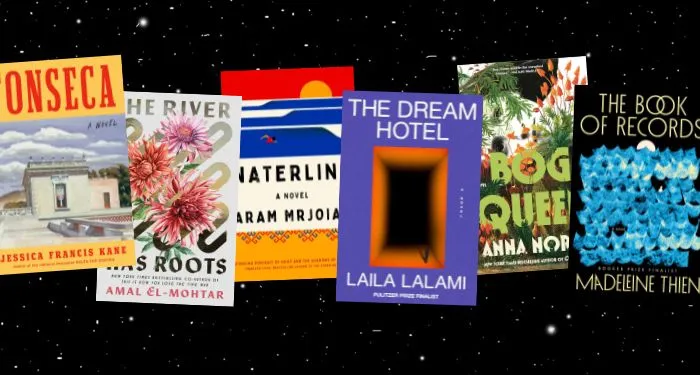

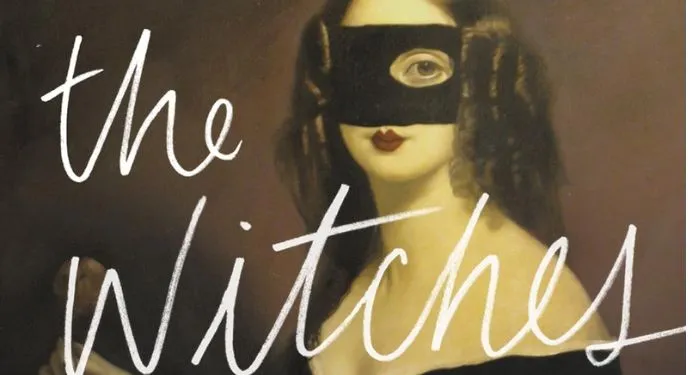
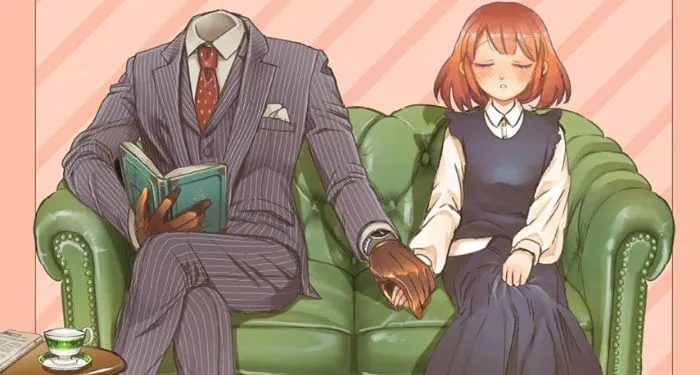


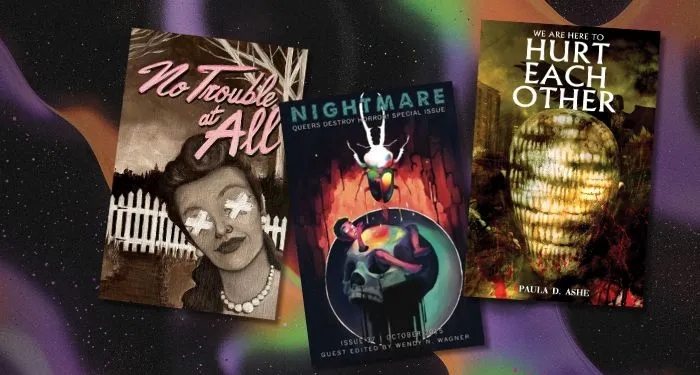



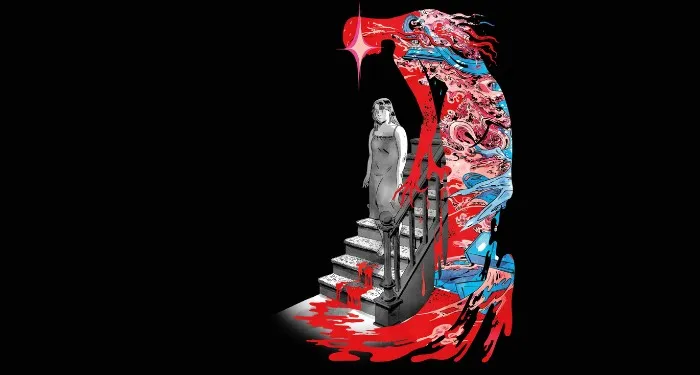

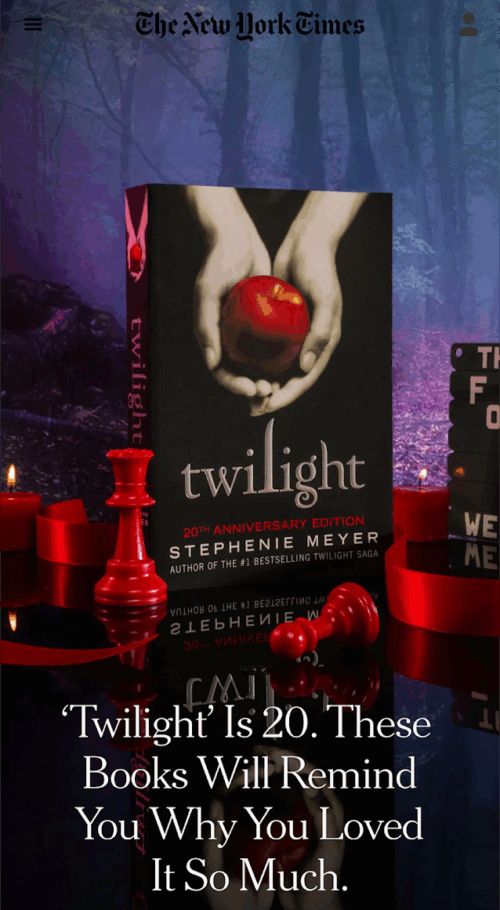
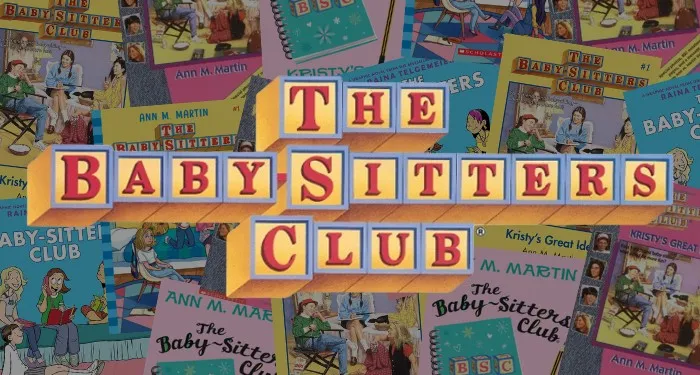



 English (US) ·
English (US) ·